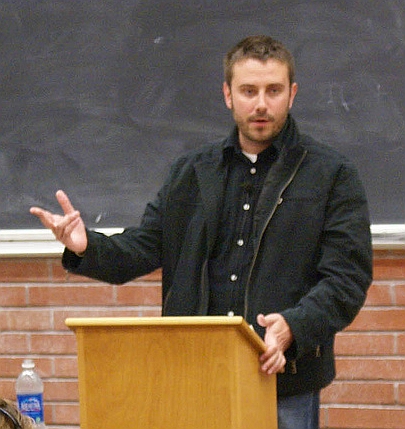
BY TANAZ MEGHJANI
There was a storm going on outside, but no one noticed. The audience was silent. The only sound that could be heard was Jeremy Scahill’s voice in Dirty Wars: The World is a Battlefield, the 2013 documentary film based on his book. The opening narration of the film states its purpose: to expose war that is unseen but in plain sight in countries such as Afghanistan and Yemen
After the film screening, Scahill began to answer questions from the audience. He stated that although the film focuses on him as the narrator and main character, he does not like to be on camera. He was very reluctant to feature in the film because he did not want to fall into the cliché of the “magic cracker.” He did not want to be the “white guy that comes in and explains all the problems of the brown people around the world.” He only decided to be a part of the film in order to make the story more interesting for the average person.

In the ensuing questions from the audience, Scahill appealed to students from Stanley McChrystal’s leadership course to stand up one day and ask McChrystal to answer for a multi-month cover up of an attack on innocent people. He believes McChrystal should not be allowed to give another lecture at Yale without answering for his crimes.
Scahill also does not believe that we should go into Syria. He acknowledges that Assad is a war criminal who should be prosecuted for the crimes he has committed against his own people. However, he does not believe that the United States has any moral legitimacy or credibility in that region. First, he reminded the audience that the U.S. has already been intervening in Syria for quite some time now. He also cited Iraq as an example of what U.S. intervention looks like. Iraq has never been more bloody or violent than it is now. As a final attack on the moral legitimacy of U.S. efforts in Syria, Scahill mentioned that President Obama had authorized the use of cluster bombs, a devastating anti-personal weapon. How we can draw a red line at chemical weapons when we are using weapons that are equally horrifying? Scahill added, “The US intervenes only, only when it believes that it’s in its self interest and humanitarianism is often used as a cloak to cover up some ulterior motive for an intervention.”
Tanaz Meghjani is a freshman in Morse College. Contact her at tanaz.meghjani@yale.edu.